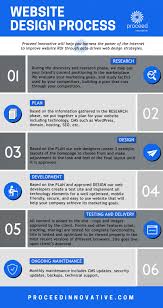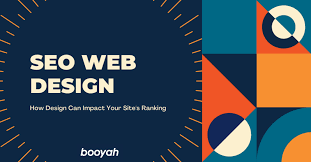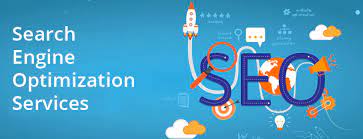Unlocking the Secrets of Effective SEO Writing Strategies
The Power of SEO Writing
SEO writing is a crucial element in the world of digital content creation. It involves crafting content that is not only engaging and informative but also optimised for search engines. In today’s competitive online landscape, having a solid grasp of SEO writing can make all the difference in driving traffic to your website and reaching your target audience.
What is SEO Writing?
SEO writing, or search engine optimisation writing, is the practice of creating content that is tailored to rank well in search engine results pages (SERPs). This involves incorporating relevant keywords, meta tags, and other SEO best practices to ensure that your content is easily discoverable by users searching for related topics.
The Benefits of SEO Writing
Effective SEO writing can have a significant impact on your online visibility and organic traffic. By optimising your content for search engines, you increase the likelihood of your website appearing higher in search results, ultimately driving more qualified traffic to your site. Additionally, well-optimised content can enhance user experience and encourage engagement with your brand.
Key Elements of SEO Writing
When creating SEO-friendly content, it’s essential to consider various key elements, including:
- Keyword Research: Identifying relevant keywords that align with your target audience’s search intent.
- Title Tags and Meta Descriptions: Crafting compelling titles and meta descriptions that entice users to click through to your website.
- Quality Content: Creating high-quality, valuable content that addresses the needs and interests of your audience.
- Internal Linking: Linking to other relevant pages within your website to improve navigation and user experience.
Tips for Effective SEO Writing
To excel in SEO writing, consider the following tips:
- Create Unique Content: Avoid duplicate content and strive to offer fresh insights and perspectives in your writing.
- Optimise for User Intent: Understand what users are searching for and tailor your content to meet their needs.
- Maintain Readability: Use clear language, headings, and formatting to enhance readability for both users and search engines.
- Monitor Performance: Regularly analyse the performance of your content using tools like Google Analytics to make data-driven improvements.
In Conclusion
In conclusion, mastering the art of SEO writing is essential for any business looking to succeed online. By implementing effective SEO strategies into your content creation process, you can enhance visibility, attract more organic traffic, and ultimately achieve greater success in the digital realm.
Top 6 Benefits of SEO Writing: Boosting Visibility, Rankings, and Credibility
- Increased online visibility
- Higher search engine rankings
- Targeted audience engagement
- Improved organic traffic
- Enhanced user experience
- Greater brand credibility
7 Drawbacks of SEO Writing: Challenges and Considerations
- 1. Time-Consuming
- 2. Constant Updates
- 3. Keyword Stuffing
- 4. Competitive Landscape
- 5. Limited Creativity
- 6. Technical Knowledge Required
- 7. Uncertain Results
Increased online visibility
Increased online visibility is a key benefit of SEO writing. By optimising content with relevant keywords and SEO best practices, businesses can improve their search engine rankings and attract more organic traffic to their websites. Enhanced online visibility not only helps in reaching a wider audience but also establishes credibility and authority in the digital space. With increased visibility, businesses have a greater chance of connecting with potential customers and driving conversions, ultimately leading to growth and success in the competitive online landscape.
Higher search engine rankings
One of the key benefits of SEO writing is the ability to achieve higher search engine rankings. By strategically incorporating relevant keywords and optimising content for search engines, businesses can improve their visibility in search results. Higher search engine rankings not only increase organic traffic to websites but also enhance brand awareness and credibility, ultimately leading to greater online exposure and potential for attracting a larger audience of interested users.
Targeted audience engagement
One significant advantage of SEO writing is its ability to facilitate targeted audience engagement. By incorporating relevant keywords and optimising content for search engines, businesses can attract a specific audience interested in their products or services. This targeted approach ensures that the content resonates with the right demographic, leading to higher engagement levels, increased interaction, and ultimately, greater conversion rates. SEO writing enables businesses to connect with their desired audience on a deeper level, fostering meaningful relationships and driving sustainable growth in the digital landscape.
Improved organic traffic
One of the key advantages of SEO writing is its ability to enhance organic traffic to your website. By strategically incorporating relevant keywords and optimising your content for search engines, you can increase the visibility of your site in search results. This improved visibility not only attracts more visitors but also ensures that they are highly targeted, leading to a higher likelihood of converting them into valuable customers or clients. Ultimately, the boost in organic traffic generated through effective SEO writing can significantly contribute to the overall success and growth of your online presence.
Enhanced user experience
One of the key benefits of SEO writing is the enhancement of user experience. By creating content that is not only optimised for search engines but also tailored to meet the needs and interests of your target audience, you can provide a more engaging and valuable experience for users visiting your website. Well-structured, informative, and easy-to-navigate content not only attracts visitors but also keeps them on your site longer, increasing the likelihood of conversions and building trust in your brand. Ultimately, prioritising user experience through SEO writing can lead to higher levels of engagement, improved customer satisfaction, and long-term loyalty from your audience.
Greater brand credibility
One significant advantage of SEO writing is the enhancement of brand credibility. By consistently producing high-quality, SEO-optimised content that ranks well in search engine results, businesses can establish themselves as authoritative sources within their industry. This increased visibility and credibility not only attract more organic traffic but also instil trust and confidence in potential customers, ultimately leading to stronger brand recognition and loyalty.
1. Time-Consuming
One significant drawback of SEO writing is its time-consuming nature. Crafting SEO-optimised content involves meticulous research, strategic keyword selection, and thoughtful planning to ensure that the content aligns with search engine algorithms. This process can be labour-intensive and time-consuming, requiring writers to invest considerable effort in understanding target audiences and industry trends to produce effective SEO content that resonates with both search engines and readers.
2. Constant Updates
One significant drawback of SEO writing is the need for constant updates. Search engine algorithms undergo frequent changes, requiring continuous adjustments to ensure the effectiveness of SEO strategies. This dynamic nature of search engine algorithms means that what works well today may not yield the same results tomorrow. As a result, staying on top of these updates and adapting content accordingly can be a time-consuming and ongoing challenge for businesses aiming to maintain their search engine visibility and rankings.
3. Keyword Stuffing
An inherent con of SEO writing is keyword stuffing, where writers excessively use keywords in an effort to improve search engine rankings. However, this practice can have detrimental effects on the overall quality and readability of the content. When keywords are unnaturally inserted into the text, it can disrupt the flow of the writing and make it appear spammy to both readers and search engines. As a result, instead of enhancing the content’s visibility, keyword stuffing may lead to a negative user experience and potential penalties from search engines for manipulative tactics.
4. Competitive Landscape
In the realm of SEO writing, one significant drawback is the highly competitive landscape that exists within the online market. With an abundance of content available on the internet, it becomes increasingly challenging for businesses to differentiate themselves and capture the attention of their target audience solely through SEO writing efforts. Standing out amidst this saturation requires not only strategic SEO practices but also a unique and compelling approach to content creation that goes beyond traditional search engine optimisation techniques.
5. Limited Creativity
One significant drawback of SEO writing is the limitation it imposes on creativity. When writers overly prioritise SEO requirements, there is a risk of stifling creative freedom and originality in their content. The pressure to incorporate specific keywords or adhere strictly to SEO guidelines can sometimes hinder the natural flow of writing and impede the development of unique, engaging narratives. Striking a balance between optimising for search engines and maintaining artistic expression is essential to ensure that content remains both discoverable and captivating for readers.
6. Technical Knowledge Required
One significant drawback of SEO writing is the technical knowledge required to effectively implement SEO principles and utilise relevant tools. For writers lacking a technical background, grasping the intricacies of SEO can be challenging. Understanding algorithms, keyword research, and analytics may seem complex and overwhelming, making it difficult to optimise content for search engines without the necessary expertise. This barrier can hinder writers from fully harnessing the power of SEO and achieving optimal results in their digital content strategies.
7. Uncertain Results
In the realm of SEO writing, one notable drawback is the uncertainty surrounding results. Despite dedicating time and resources to optimise content for search engines, there remains no assurance of immediate or substantial enhancements in search engine rankings. This unpredictability can be frustrating for businesses seeking quick and tangible outcomes from their SEO efforts, as the impact of optimisation strategies may not always yield the desired results within a short timeframe.









